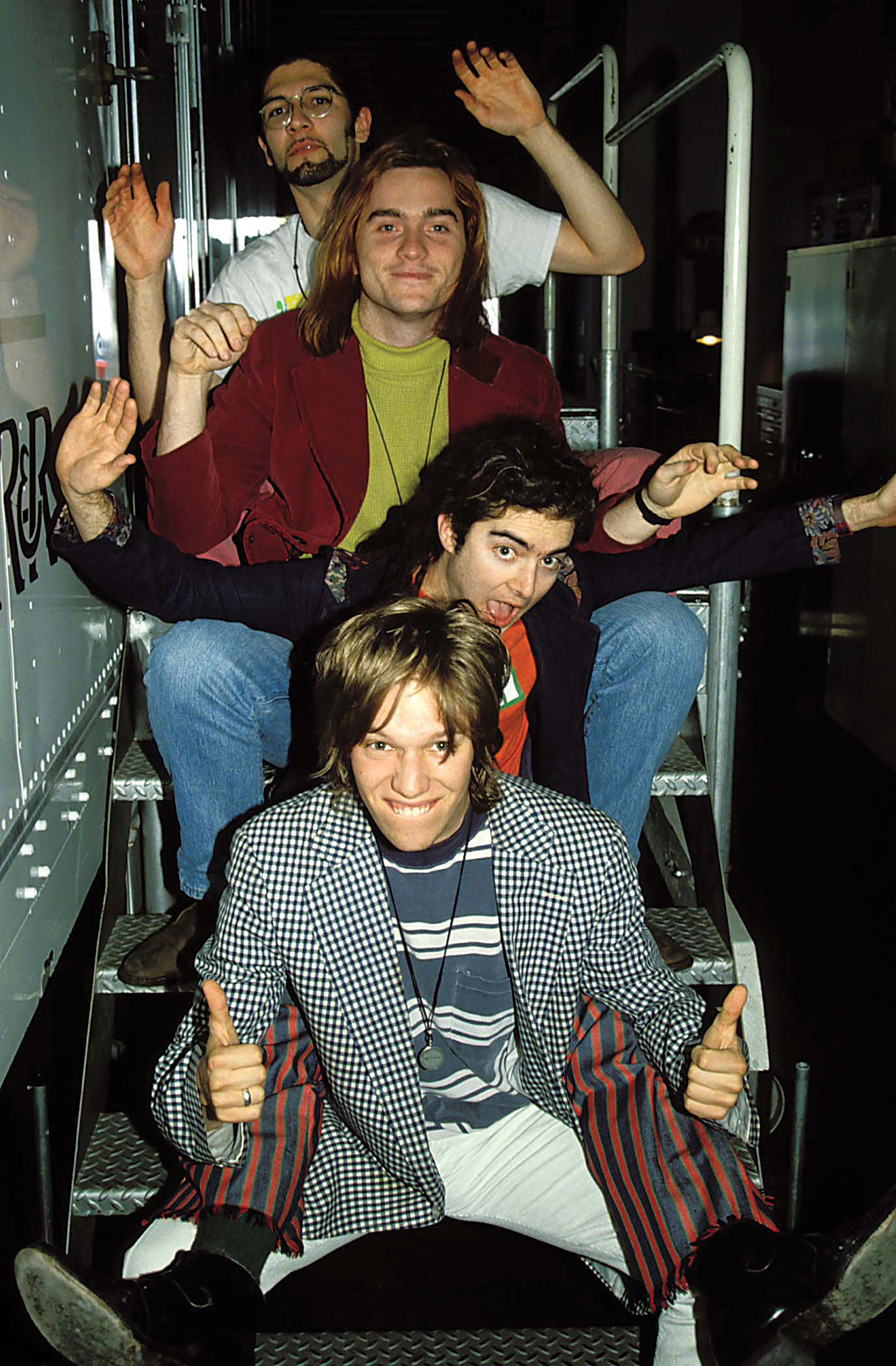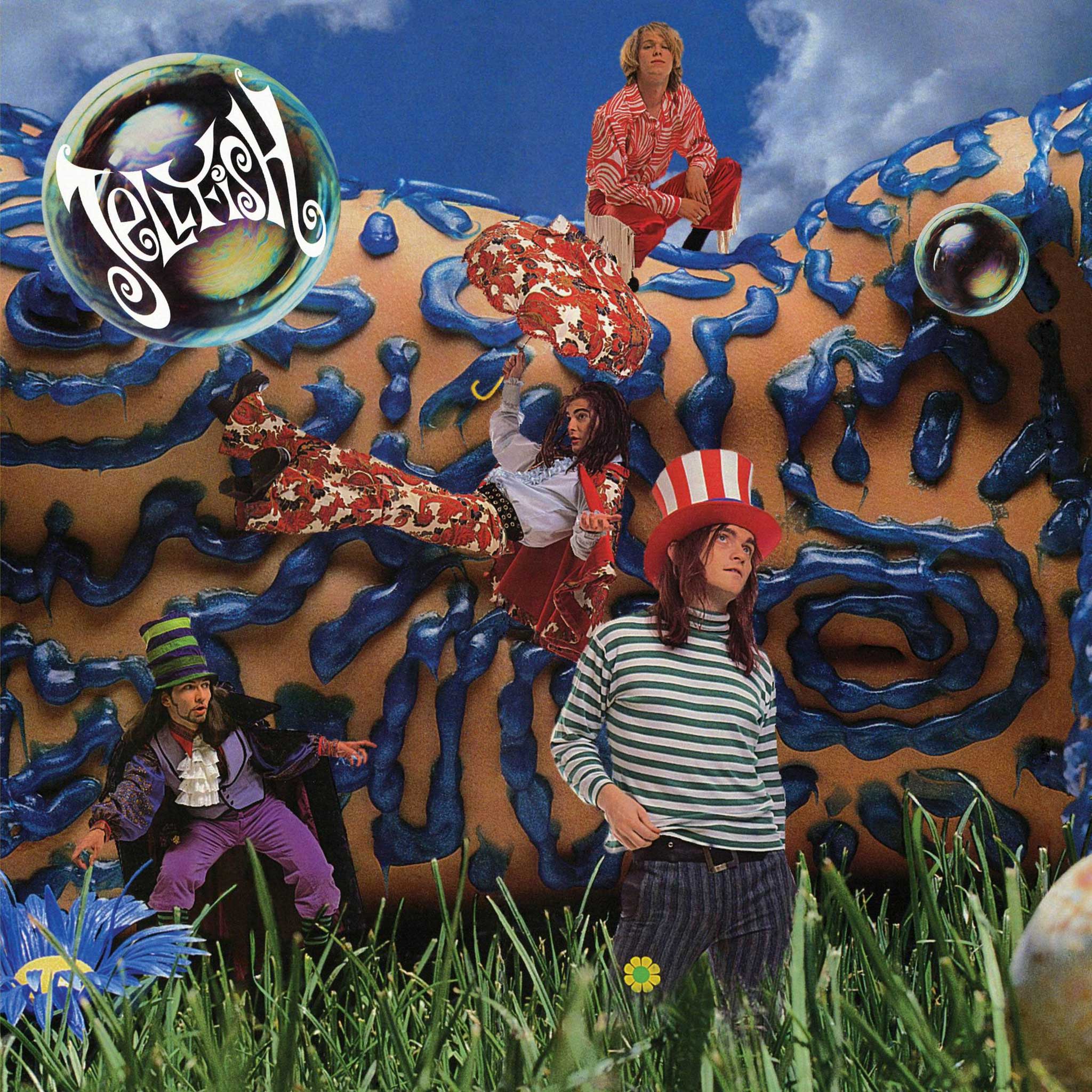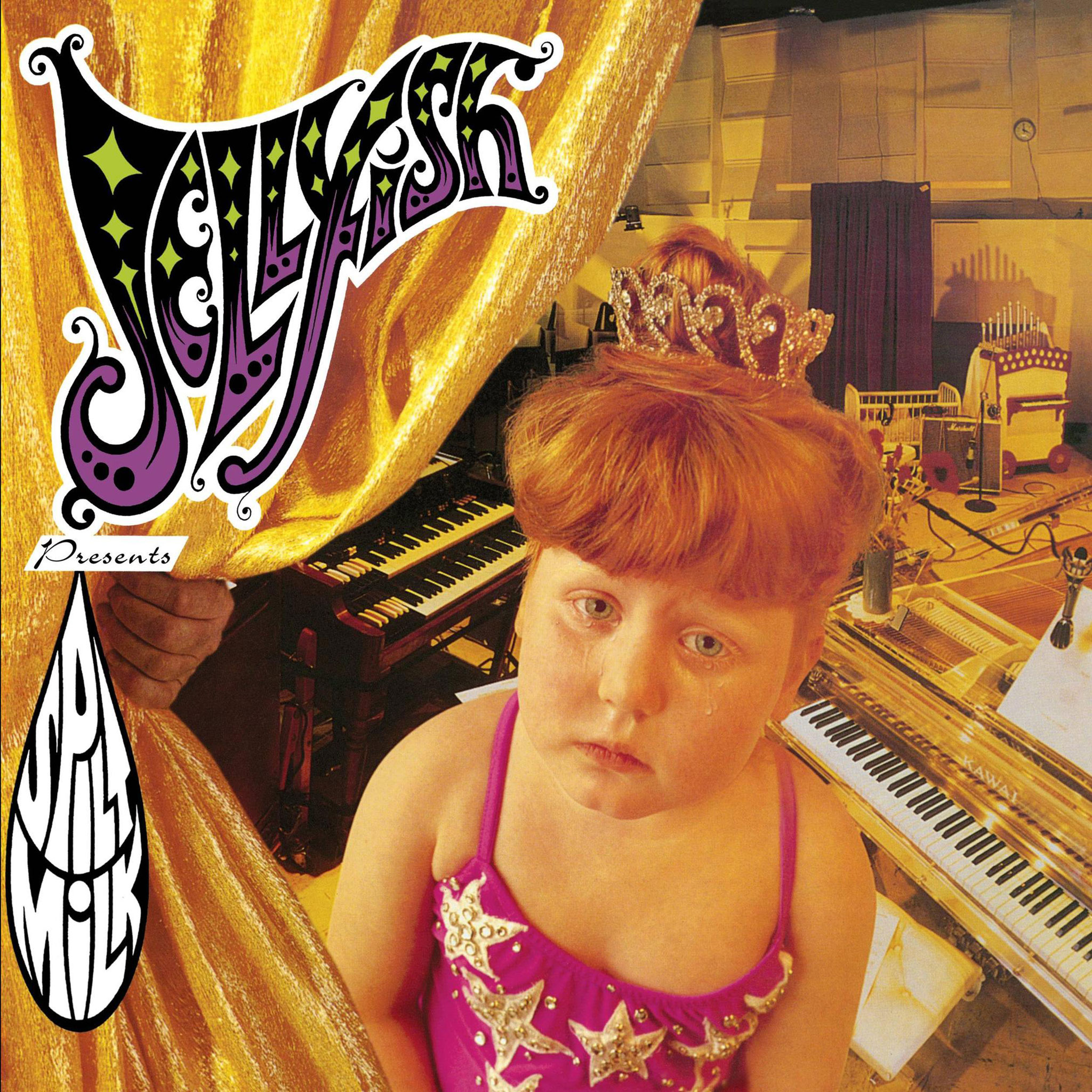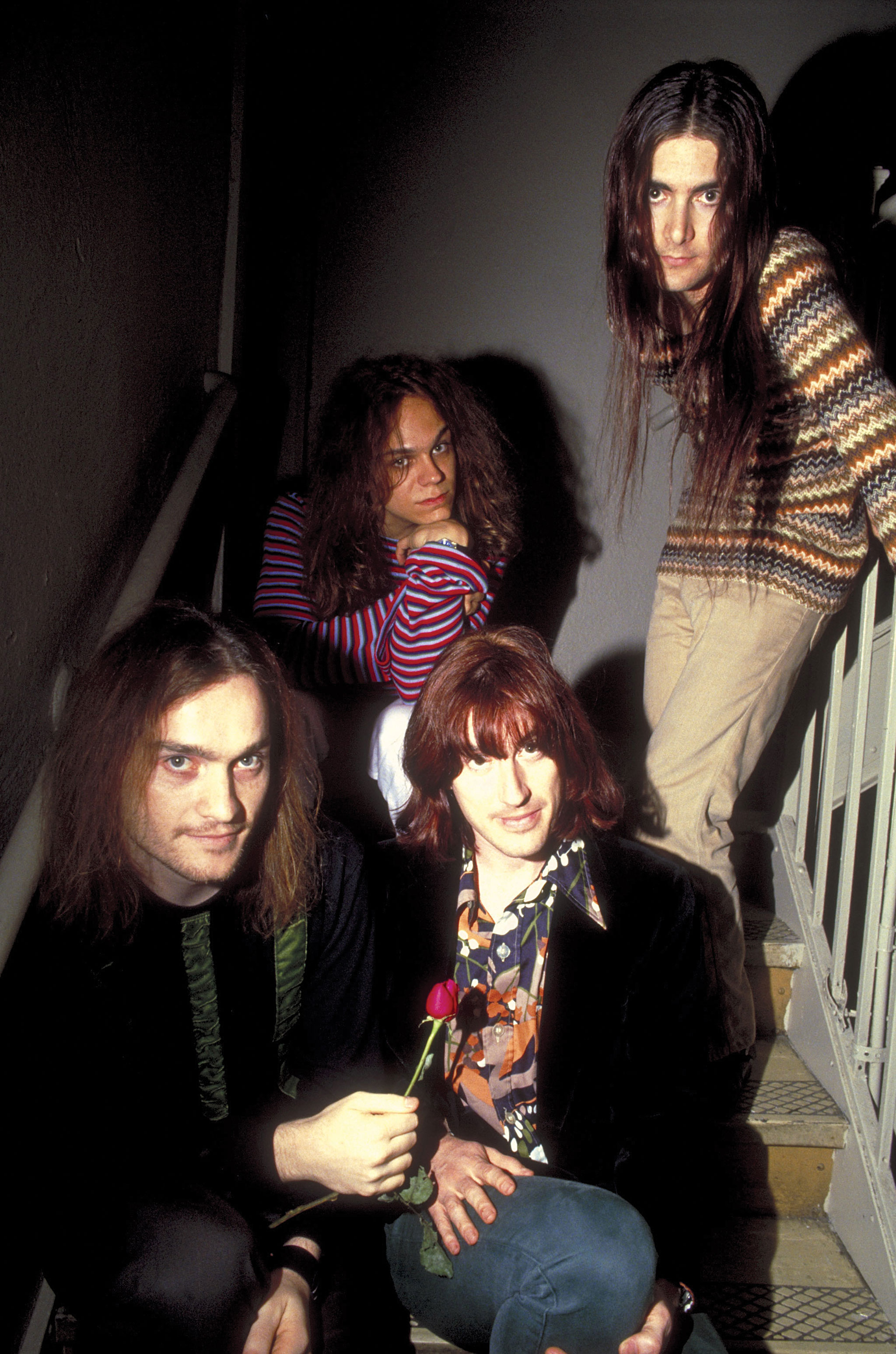The Outer Limits: Jellyfish
Short-lived San Fran power pop madcaps Jellyfish certainly had a taste for the absurd, from outfits to orchestration, and a deep-rooted love for British prog. But were they part of our world?

Select the newsletters you’d like to receive. Then, add your email to sign up.
You are now subscribed
Your newsletter sign-up was successful
Want to add more newsletters?

Every Friday
Louder
Louder’s weekly newsletter is jam-packed with the team’s personal highlights from the last seven days, including features, breaking news, reviews and tons of juicy exclusives from the world of alternative music.

Every Friday
Classic Rock
The Classic Rock newsletter is an essential read for the discerning rock fan. Every week we bring you the news, reviews and the very best features and interviews from our extensive archive. Written by rock fans for rock fans.

Every Friday
Metal Hammer
For the last four decades Metal Hammer has been the world’s greatest metal magazine. Created by metalheads for metalheads, ‘Hammer takes you behind the scenes, closer to the action, and nearer to the bands that you love the most.

Every Friday
Prog
The Prog newsletter brings you the very best of Prog Magazine and our website, every Friday. We'll deliver you the very latest news from the Prog universe, informative features and archive material from Prog’s impressive vault.
We have to ask: How prog were Jellyfish?
The greatest unsung British band of the 1970s actually emerged from the San Francisco suburbs in the late 1980s. During their all-too-fleeting five-year existence, these gaudily dressed dandies released a pair of albums that channelled the vaulting progressive ambition of Anglocentric visionaries such as ELO, The Beatles, Queen and 10cc into a series of pocket masterpieces that either arrived a decade-and-a-half too late or were so far ahead of their time that they’re still waiting for the rest of the world to catch up.
More than 20 years after their split, Jellyfish practically define the notion of the cult band. To the small but ardent following they attracted, they remain lost geniuses whose promise remains unfulfilled. To the members of the band, the memories remain bittersweet, the frequently glorious music they created forever tinged by tensions that prematurely ended both the band and the childhood friendship between its two protagonists, Andy Sturmer and Roger Manning Jr.

Above: Willy Wonka’s day out: “No record company on the planet would make people dress like that.”
Looking back on the band he formed with his schoolfriend Sturmer in 1989, keyboard player Manning sounds justifiably proud of the music they made with a shifting cast of musicians. His recollections are being brought into sharp focus by the recent re-release of the two Jellyfish albums, 1990’s Bellybutton and 1993’s Spilt Milk.
“I saw a lot of artists growing up, whether it was Peter Gabriel, Talking Heads, Blondie or Devo, who were able to be conceptual and have very artistic and unique moments, and yet they were successful,” says Manning. “I grew up assuming that anyone could do that. In an era that was drowning in the monotony of hair metal and grunge, Jellyfish couldn’t have been more opposite and unique.”
“One of the reasons I love Jellyfish is because they tried to capture all that was great about the 70s,” says Doug Ott of US prog band Enchant, an ardent Jellyfish fan. “Music, look, vibe, instrumentation, rock, progressive, folky, jazzy… they really mixed it up. You can always tell it’s them, though – not just a rehash of old music, but a blend that created a new sound all their own.”
Sign up below to get the latest from Prog, plus exclusive special offers, direct to your inbox!

Above: Doug Ott, a big Jellyfish fan.
Manning and Sturmer hailed from the suburbs of Northern California, far from the bohemian epicentre of San Francisco. Their influences, on the other hand, were almost exclusively British. “So many things, from progressive rock to the dawn of punk,” says Manning. “From Yes and Genesis to The Damned, XTC and The Smiths. 10cc were a huge influence. They modelled pop as its highest art form. They were a British Steely Dan in that way.”
It wasn’t just their Anglophile tendencies that set Jellyfish apart. Both had previous been members of pop-rock band Beatnik Beatch, where Sturmer simultaneously played drums and sang. It was an unusual set-up that the pair carried on into Jellyfish when Beatnik Beatch fell apart. Gigs featured the whole band standing in a line at the front of the stage, with Sturmer bashing out playful rhythms on a stripped-down kit while standing up. Onstage and in their videos, they dressed in colourful and deliberately anachronistic thrift store clothes – patchwork coats, multi-coloured plus-fours, buckled shoes, top hats. The effect was of four musical Willy Wonkas on day release from the Chocolate Factory.
“We uniformly loathed the whole lumberjack rock star thing that was starting to happen – T-shirt and jeans and your crack showing when you leaned down,” says Jason Falkner, the band’s original guitarist and studio bassist. “We didn’t want to be an everyman band at all. We wanted to be from outer space. With a wink and a nod.”
Like his bandmates, Falkner grew up with catholic musical tastes. He names British post-punk pioneers The Fall, Magazine and The Monochrome Set as inspirations, then adds Yes and John Wetton’s post-King Crimson collective UK as two of his teenage musical touchstones. “I was so into the UK live record, Night After Night,” he says. “I was, like, ‘How the hell are three guys doing that?’”

Above: Jellyfish’s Bellybutton album.
Jellyfish’s debut album, Bellybutton, may have been housed in the sort of Day-Glo cover that looked like a pastiche of every early 70s US kids’ TV programme, but the music inside was anything but childlike. Sturmer and Manning fed the sound of the bands they grew up with through a blender, though what came out in truth bore little relation to what went in. Skewing towards their grander influences – 10cc, The Beatles, XTC, and, in a nod to their Californian background, The Beach Boys – the likes of The King Is Half Undressed and the nursery-rhyme-like Baby’s Coming Back may have sounded deceptively simple, but in reality they were as perfectly crafted as anything their forebears had written.
“That’s exactly what it was – studying a craft,” says Manning. “Why, when I listen to a Brian Wilson song like Don’t Worry Baby or The Warmth Of The Sun, do I feel like I’ve taken a drug, and when the song is over the drug has worn off? I wanted to figure out how I could do that, so I could shoot myself and an audience with my own drug.”
The audience had other ideas. Manning puts the sales of Bellybutton at around 100,000 in the US – a figure that would constitute a decent-sized hit today, but, in an era dominated by such multi-platinum behemoths as Guns N’ Roses and Metallica, was decidedly underwhelming.
“I felt we were sitting on a master- piece,” says Falkner. “We’d made a great album, and they were great songs with a great singer. And we were kind of radical for the time. Radical in the respect that we had such a ridiculous sense of humour. The way we looked might have been a deterrent. I’ve had people say to me, ‘Why would you people even agree to dress like that? Did the record company make you do it?’ I always say, ‘There is no record company on the planet that would make people dress like that. That was all down to us.’”
If Bellybutton was a multi-coloured square peg in the black and white hole that was the early 90s music scene, then its follow-up felt like it had arrived in from another universe on the back of the spaceship from the cover of ELO’s Out Of The Blue. By the time they recorded it, Falkner had quit, the tensions of working with two perfectionists such as Manning and especially Sturmer proving too much.
“Andy had a real strong idea of what he wanted to do, and I found that my voice wasn’t as loud,” he says now. “They weren’t open to doing any of my songs, and I didn’t want to be a sideman. I was a little bit outside the clique that was Roger and Andy, because they had known each other for so long. So I found that really difficult. It was not inspiring. It was an ulcer-maker. I quit to save my life. It was for self-preservation.”

Above: Jellyfish’s second album, Spilt Milk.
Even without the man the keyboard player describes as “the perfect part of the Jellyfish triangle during that period of our evolution”, the Manning-Sturmer writing partnership soared to new levels. Dispensing with any vestiges of sonic politeness that clung to Jellyfish on their debut album, _Spilt Milk _ratcheted the pair’s grandiose vision even higher. Stacked with multi-tracked harmonies and musical trickery, kaleidoscopic symphonies such as Joining A Fan Club and the glorious, brass-infused chamber pop of Bye Bye Bye were the missing link between Queen, ELO, Paul McCartney and master songwriting craftsman Burt Bacharach. “In my opinion, Spilt Milk finally arrived at the total vision we had for Jellyfish,” says Manning. “The grandeur that was in our hearts from day one was finally realised with that album.”
Fittingly, one of the people who inspired the album recognised its genius. Queen guitarist Brian May was interviewed in 1993 while on tour in America with his solo band. “We have the tape [of Spilt Milk] on the bus,” said May. “We like it. I can hear some influences, but they’re going into new places. It’s a very interesting group indeed. I’m glad our influence can be seen out there.”

Despite such high-profile support, Jellyfish were doomed never to reap the success they deserved. Like Lennon and McCartney before them, Manning and Sturmer were growing apart. Manning suggests his bandmate found success “challenging”, though personal and musical differences between the two were increasingly hard to ignore.
“Andy and I had essentially been together for six or eight years,” he says. “We were getting complacent and bored with each other. Our differences as people were starting to magnify, and musically the exact same thing was happening. When we started putting music together for our third record, it was clear we were on very different paths.”
Manning knew the writing was on the wall when he dropped by Sturmer’s house to talk about songs for a third Jellyfish album, only for his colleague to present him with a country-folk ballad. “I was rediscovering my love of Wings, T-Rex, Sparks – high-energy, fun melodic pop with attitude,” says Manning. “And Andy was Leonard Cohen. That was it. If I’d known about band counselling then, I’d have tried it. But I think that would have only been a temporary fix.”

Above: The 1993 line-up. L-r: Andy Sturmer, Eric Dover, Tim Smith and Roger Manning Jr.
Five years after they exploded into life, Jellyfish were over. The effort and emotion that Manning and Sturmer had poured into their brainchild during its all-too-brief life span was so great that the split irreparably damaged their friendship: the pair haven’t spoken in the flesh since they parted company, and when Manning finally reconnected with his old friend and bandmate in 2010, it was via email. Sturmer, who now works as a composer for children’s TV shows, refuses to do any interviews about his work, current or past.
While Manning and Jason Falkner subsequently worked together on various projects, both say that a Jellyfish reunion is unlikely to ever happen. But the two of them are equally aware that this only emphasises Jellyfish’s legacy and their unique place in music: a band who bridged the world of power-pop and progressive rock like no one before or since.
“The term ‘progressive’ has taken on a new meaning since the bands who started the genre,” says Enchant’s Doug Ott. “Now when you say ‘progressive’ to someone it should mean being new and experimental, not rehashing what King Crimson, Pink Floyd, Yes and Genesis did. And Jellyfish certainly experimented with their influences to come up with an individual sound, without doing epics or odd time sections. They really kept their pop feel and incredible arrangements, which I think is really cool and different from what the genre usually gets.”
“We proved that you could be theatrical, colourful, you didn’t have to take yourself 100 per cent seriously,” adds Roger Manning. “You could throw a big, dumb, fun party and still have your music be full of intricacy and artistry. I used to remember the unfortunate episodes. Now the memories are quite selective. When Jellyfish is mentioned these days, I remember the joy of it.”
YOUR SHOUT!
As colourful as a bag of 70s style pick and mix and twice as clever. But how prog were 90s US rockers Jellyfish?
“Prog enough. Proggier than Devo and Gotye. Wonderful arrangements and layers, just in pop format.” – Buckley Fountain
“Very dynamic, lead singing drummer at the front of the stage. How prog is that?” –Graeme Green
“Great band, bit Supertramp, prog-lite moments.” – Marc Hughes
“They were prog in a Queen kind of way. Love them.” – Thomas Gitopolous
“Big crossover between those that like prog and those that like Jellyfish in my experience. Hugely underrated band.” – Geoff Stockham
“Not much, but they were good…” – P. J. Bryant
“Power pop.” – Neil Lach-Szyrma
“Jellyfish? Utterly prog, and amazing live!” – M. Ratcliffe
“A little bit prog.” – Dan Gibbs
“Very prog. Such an underrated band, still listen to them all the time. Deserve more love.” – Lisa Coverdale
“Although notionally a power pop band, they definitely had some prog elements, especially on Spilt Milk.” – Titus Jennings
“Pop-prog. Quirky time signatures but with glorious melodies and harmonies. And a standing drummer.” – Phil Morris
“Jellyfish were the missing link between Queen and Beatles! Love them dearly!” – Evripidis Tarasidis
“As prog as anything else within the genre, but still accessible enough to pull in rock and pop fans. I just recently got a female friend hooked on Spilt Milk for her first listen.” – Jon Sutton
“They were indeed progressive. I miss them…” – Naughty Nellie The Swindon Pole Dancer
“Very much so, interesting time changes with the added influence of Queen and Wings.” – Danny Mayo
“I love Jellyfish. I’ve seen Jason Falkner’s solo show live, his album Author Unknown is a stunner.” – That Stevens Fell
“Although I’m a big fan of Euro pop, Jellyfish proved the Americans could occasionally rival their European cousins for delightful melody.” – Russell Fairbrother
“Despite Spilt Milk being a concept album probably not prog, but most certainly the best power pop outfit ever!” – Martin Ingram
Dave Everley has been writing about and occasionally humming along to music since the early 90s. During that time, he has been Deputy Editor on Kerrang! and Classic Rock, Associate Editor on Q magazine and staff writer/tea boy on Raw, not necessarily in that order. He has written for Metal Hammer, Louder, Prog, the Observer, Select, Mojo, the Evening Standard and the totally legendary Ultrakill. He is still waiting for Billy Gibbons to send him a bottle of hot sauce he was promised several years ago.

